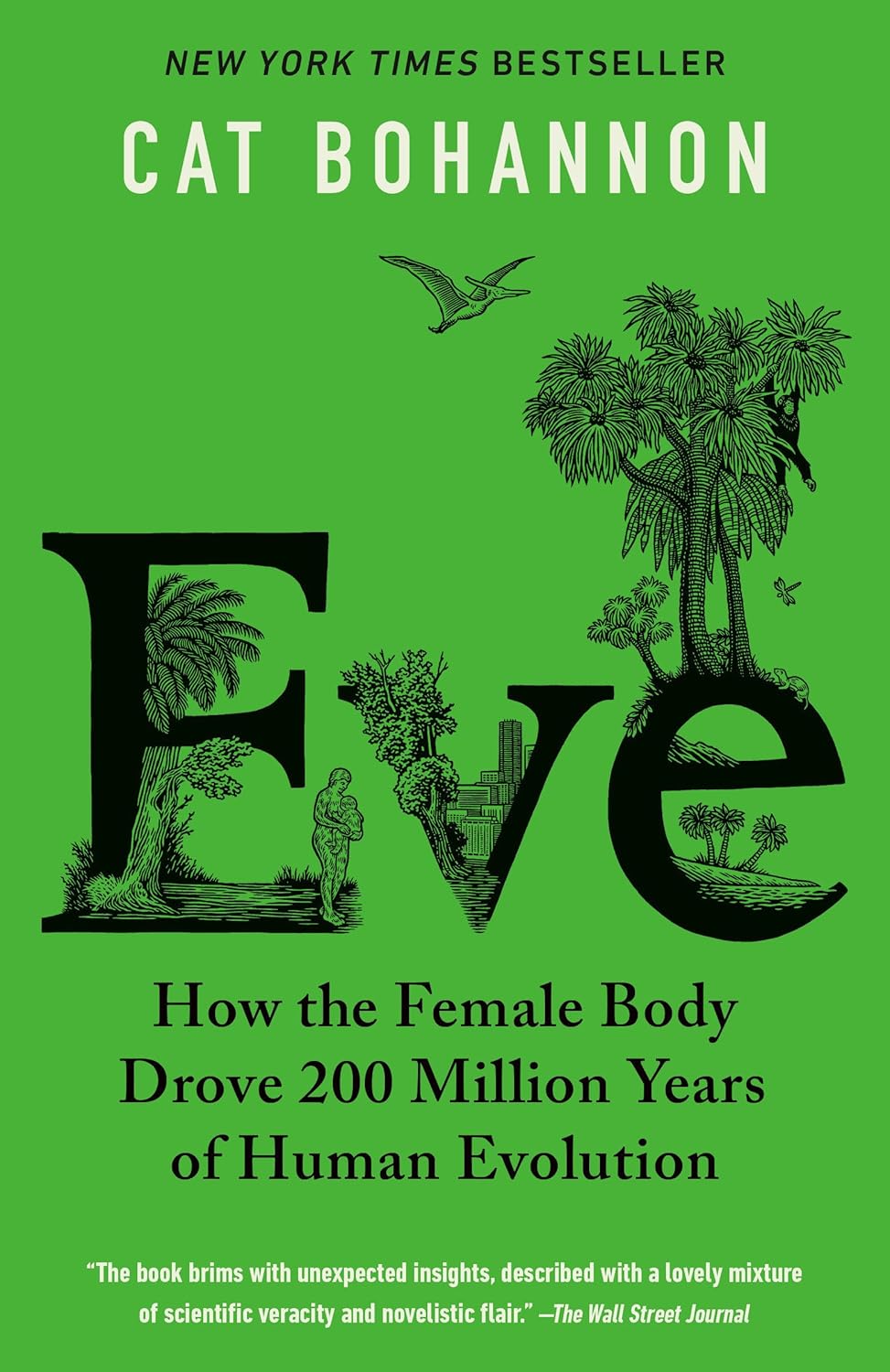Book Club Discussion Questions
In a book club? Subscribe to our Book Club Newsletter!
For supplemental discussion material see our Beyond the Book article, A World Not Built for Women: Gender Bias in Medicine & Science and our BookBrowse Review of Eve.
Please be aware that this discussion guide will contain spoilers!
- In her introduction, Cat Bohannon quotes Susan Sontag, who wrote in her essay for Annie Leibovitz's book Women, "any large-scale picturing of women belongs to the ongoing story of how women are presented, and how they are invited to think of themselves. [As such, it raises] the question of women—there is no equivalent 'question of men.' Men, unlike women, are not a work in progress." Talk about the way that quote makes you feel. Do you think it rings true in your own life? In the lives of the women you know?
- Bohannon grounds each chapter with an Eve, an evolutionary great-great-grandmother from whom we have all evolved. How did that organizational method feel to you as the reader? Was it helpful to get to know the various animals from whom we've evolved as humans? Did you have trouble imagining these species as ancestors?
- What misconceptions about the female body did you confront while reading this book?
- Have you noticed any of the evolutionary traits Cat Bohannon refers to in Eve in yourself or in women around you? If so, which ones?
- Anyone who has struggled with fertility issues can attest that getting pregnant is not as easy as it was purported to be in middle school health class. The author even seems baffled at how there came to be 8.1 billion people inhabiting the earth when there's only a 9 percent chance of conception every month. In what ways did humans evolve to boost their chance of proliferation? To what do we owe our success as a species?
- Our hominin Eves developed gynecology by creating a cooperative female society. Bonobos have demonstrated giving birth with other females present in the nest. What are some ways a cooperative female society has helped you in your life? What are ways you contribute to a cooperative female society in your community?
- Humans aren't the only species that face rape culture. Talk about some of the evidence that exists in other species that guard females against reproduction when they don't want to procreate. How did that make you feel about the prolific rape problem among humans?
- The author enumerates several ways the female body communicates with other humans without words or language. What are some of those ways? Have you felt or seen this wordless communication in your own body or in other women?
- In the chapter on menopause, Bohannan lays out the puzzle that exists in modern humans, which is that women go through menopause and live another 25 to 30 percent of their lives without being able to reproduce. What did you think of the evolutionary reason for this? What were some times when the elder women in your life guided you with their memories and lived experience?
- Why did humans evolve to have such big brains that went on to reinforce sexist social structures? And why are women, in many ways, more invested in protecting sexist norms than men?
- The last line of the book is a call to action urging women to stop giving men all our power. What are some ways, either that the author illuminates in the book or that you've thought of, that we can take back our power?
- Cat Bohannan begins her book stressing that "female bodies aren't just male bodies with 'extra stuff' (fat, breasts, uteri). Nor are testicles and ovaries hot swappable. Being sexed permeates every major feature of our mammalian bodies and the lives we live inside them, for mouse and human alike." But she also writes, "It's clear that trans women are women." Does Bohannan do a good enough job of exploring the possible evolutionary history of other bodies beyond cisgender women?
- After reading the book, did you feel more of a kinship to your own body or a better understanding of the women in your life? Did the history and the science in this book serve to illustrate just how little we've been taught about the female body up until now?
- Due to a combination of racism, sexism, ableism, and reduced public support for women's health, it's more dangerous for American women to be pregnant now than it has been in the last hundred years. What do you find most frustrating about this backslide? What are ways society can combat it?
- As we think about the future, what evolutionary adaptations do you think female human bodies will make over the next several thousand years?
Suggested Reading
Survival of the Friendliest by Brian Hare and Vanessa Woods
How to Be Animal by Melanie Challenger
A Natural History of the Senses by Diane Ackerman
The First Word by Christine Kenneally
Survival of the Prettiest by Nancy Etcoff
Owning Our Struggles by Minaa B.
Bonobo Handshake by Vanessa Woods
Revelations in Air by Jude Stewart
Data Feminism by Catherine D'Ignazio and Lauren F. Klein
Seven Skeletons by Lydia Pyne
Lucy's Legacy by Dr. Donald Johanson and Kate Wong
Fertile Ground by Irene Diamond
Before the Dawn by Nicholas Wade
An Immense World by Ed Yong
She Has Her Mother's Laugh by Carl Zimmer
Evolving Ourselves by Juan Enriquez and Steve Gullans
Parenting Beyond Power by Jen Lumanlan, MS
Unless otherwise stated, this discussion guide is reprinted with the permission of Vintage.
Any page references refer to a USA edition of the book, usually the trade paperback version, and may vary in other editions.
For supplemental discussion material see our Beyond the Book article, A World Not Built for Women: Gender Bias in Medicine & Science and our BookBrowse Review of Eve.
